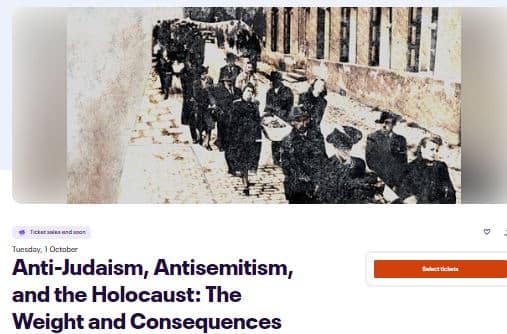Anti-Judaism, Antisemitism, and the Holocaust: The Weight and Consequences of Words

The Parkes Institute
Speakers
Carolyn Sanzenbacher, ‘Solving the Jewish Problem through Conversion: Anti-Judaism or Antisemitism?’
John K. Roth, ‘What is Antisemitism?’
John T. Pawlikowski, ‘Uprooting Antisemitism from Christianity: What Needs To Be Done’
The idea that Christianity was in any way related to the racial antisemitism that informed the Holocaust was widely resisted in the early years following the Second World War. Christian apologetics rang forth from the Protestant and Catholic arms of the Church in efforts to distinguish the anti-Judaism of Christianity from Nazi racial antisemitism. Statements condemning antisemitism called attention to its unChristian nature, stressing that the Church judged harshly all forms of injustice and hatred. While openly confessing that some members of the churches had fallen prey to antisemitism, the Church itself was seen and portrayed as irrefutably distanced from the antisemitic ideology that underwrote the murder of European Jews. Yet before the end of the Holocaust century, major bodies of Christianity, both Catholic and Protestant, had labelled traditional Church attitudes toward Jews as fuel for ‘fires of hatred’ and called on the Church to ‘submit her own history to critical examination’. By the turn of the millennium, formal confessions had been made throughout western Christendom for historical denigration of Jews and Judaism, for silence in the face of Nazi perpetrations, and for causal relations between Christian teachings on Jews and Nazi antisemitism. Looking retrospectively at what is now in its eighth decade of development and scholarly study, this seminar addresses some of the historiographic, philosophical, and theological complexities and challenges surrounding the issues and implications of Christian complicity in antisemitism during the Holocaust years.
